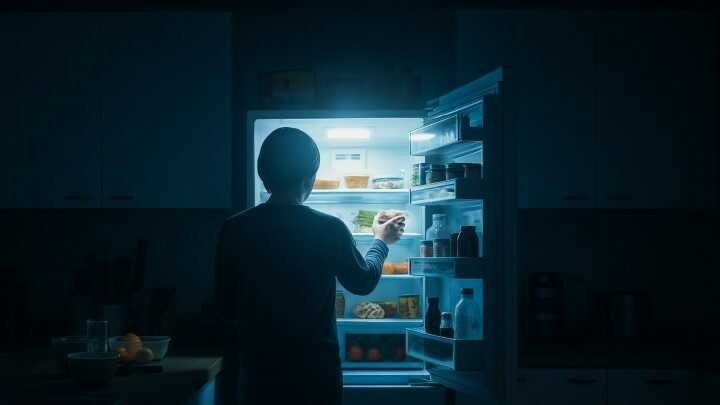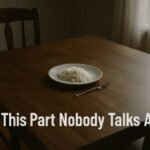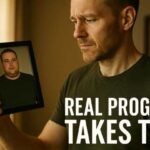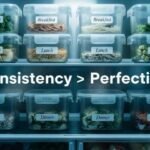Alright… let’s talk about the addiction no one wants to admit they’ve got. Not alcohol. Not drugs. Food.
And I genuinely believe it’s the hardest one to beat. You can quit smoking. You can quit drinking. But you can’t quit eating. You have to face your “drug” two, three, sometimes four times a day — and somehow pretend to control it.
Good luck with that.
When people hear food addiction, they usually picture someone who just “likes food.” Nah. It’s not that simple. It’s when your stomach’s full, but your brain’s still screaming for more. It’s when you’re physically stuffed, yet somehow feel empty inside.
I’ve been there. Countless times. It always starts the same — with a promise. A quiet one, whispered over the crinkled remains of an empty bag of crisps or a tub of ice cream.
“Monday. I’ll start fresh on Monday.”
The sacred restart button. That mythical day where everything changes.
Saturday? “Well, I’ve already messed up — might as well enjoy it.”
Sunday? “Last supper.” Burgers, fries, spoonfuls of peanut butter.
Then Monday hits… and I wake up bloated, guilty, and full of regret. Same loop. Different week.
👇 If you’d rather watch the video version, it’s right below 👇
The Guilt Cycle (and What It Taught Me)
For years, I thought guilt was the thing that would finally push me to change. Like, if I just felt bad enough after every binge, I’d stop doing it. But guilt isn’t fuel — it’s a leash. It keeps you tied to the exact behaviour you’re trying to escape.
Every Monday morning, I’d step on the scale and swear I’d do better. I’d fill the fridge with healthy food, throw out the junk, and promise myself this time would be different. But deep down, I was still chasing the same thing — that tiny moment of relief food gave me.
It wasn’t hunger. It was comfort. A distraction. A way to not feel.
I used to think willpower was the answer — until I realised why I stopped relying on willpower to lose weight in the first place. You can’t out-will your environment. You have to change what surrounds you, or it will keep changing you.
The Hidden Side of Food Addiction
People don’t see what food addiction actually looks like. It’s not just overeating — it’s shame. It’s secrecy.
I used to hide empty packaging like it was evidence at a crime scene. I’d sneak them out of the house in plastic bags, drop them in random public bins, and pretend I hadn’t eaten what I’d eaten. Who does that? Apparently, me. For years.
It took a long time to realise this wasn’t just “lack of willpower.” This was something deeper — and lonelier.
And the worst part? Everyone’s got an opinion. Family, friends — all “experts.”
“Oh, so you’re doing that fat diet now?”
Or my personal favourite: “You’re on that rice thing? So… you just eat rice?”
I could see the smirk before I even finished explaining. The judgement. The double standards. You try to fix your health and suddenly everyone becomes a nutritionist.
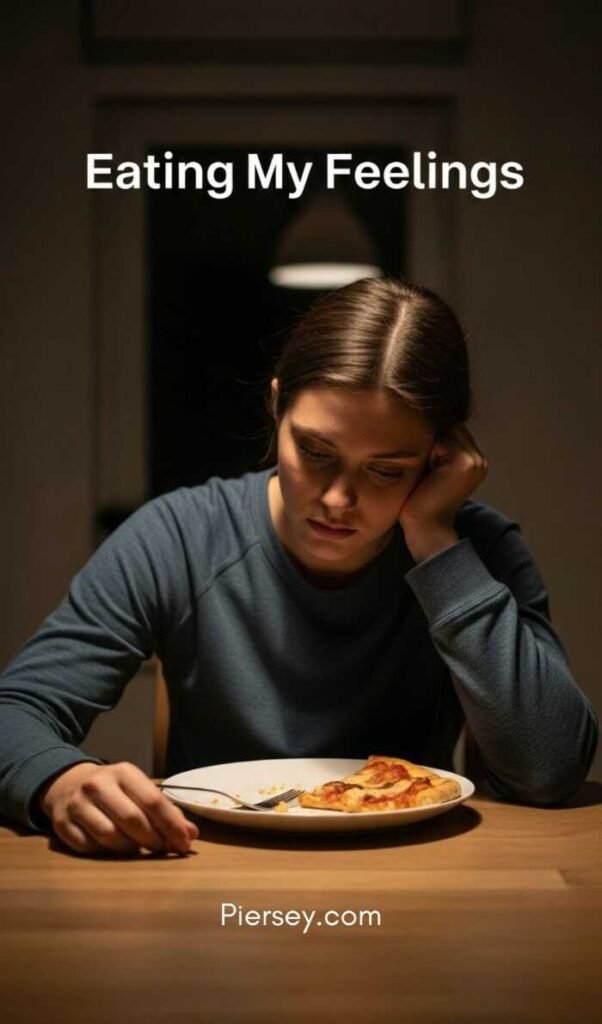

When Food Becomes Comfort
For most of us, it’s not even about taste. It’s emotional. Food becomes a coping mechanism — comfort when you’re stressed, distraction when you’re lonely, reward when you’re exhausted, punishment when you “mess up.”
And here’s the wild part: it works. For a few minutes, you get that dopamine rush. That sigh of relief.
Then comes the guilt. The crash. The spiral.
That’s why I don’t call food addiction a weakness. It’s survival. It’s your brain trying to protect you in the only way it knows how.
But the problem is — what starts as comfort quickly becomes a cage.
The Industry That Keeps You Hooked
You know what really gets under my skin? The diet industry knows all of this — and they use it against us.
They don’t want you healed. They want you hooked. Hooked on products. Hooked on “reset” plans. Hooked on the feeling that you’re broken and they’ve got the fix.
They’re not selling healing — they’re selling the illusion of control.
Because if you actually fixed your relationship with food? You’d stop buying their stuff.
That’s when I realised the real weight loss hack isn’t restriction — it’s nourishment.
When I Finally Felt Fed
When I finally stopped starving myself and started feeding myself, everything changed.
And I don’t mean eating perfectly. I mean eating real food. Food that gave me energy and peace instead of guilt and chaos.
Whether it was carnivore, plant-based, or high-carb — it didn’t matter. It wasn’t about labels anymore. It was about feeling fed.
Now, I’m doing my high-carb, low-fat rice-based approach — and honestly, it’s working for me right now. (If you’ve been curious about how that actually looks, check out what I eat in a day on the Rice Diet — it’ll make more sense once you see the structure.)
The biggest shift wasn’t physical, though. It was mental.
When I finally nourished my body instead of punishing it, my mind quieted down. The cravings faded. The constant food noise — gone.
That’s when I realised I wasn’t chasing thinness. I was chasing peace.
Simplicity Beats Obsession
Simplicity saved me.
“If I don’t snack, I don’t need to track.” That’s a motto I live by now.
Because when I stopped micromanaging every calorie, I started living again. No guilt. No apps. No turning meals into math problems.
Just simple, boring, balanced food that makes me feel human.
And yeah — I still slip. That voice still shows up. “Go on, one more bite won’t hurt.” But now I can see it for what it is: not hunger, just habit. That’s addiction, trying to lure me back.
The Great Diet Debate
Everyone thinks their diet is the only right one.
Sugar’s the villain.
No — meat’s the villain.
No — carbs are the villain!
It’s chaos.
What I’ve learned is that every approach that works has one thing in common: nutrient density.
You can lose weight counting calories, sure. But you can’t heal by counting calories.
Your body doesn’t crave numbers — it craves nutrients.
Once you give it what it actually needs, the obsession starts to fade. You stop white-knuckling your way through life. You finally feel satisfied — not just full, but nourished.
Freedom, Not Restriction
My real goal now? Freedom.
Freedom from apps. Freedom from guilt. Freedom from that Monday morning promise that never sticks.
When you understand food addiction, you stop fighting food and start making peace with it. You stop seeing it as an enemy — and start seeing it as fuel.
Recovery isn’t about perfection. It’s about peace.
There are still days where I struggle — when the urge to binge whispers louder than my logic. On those days, I go back and reread what I wrote in How I Deal with Food Cravings on a Strict Diet — because sometimes you just need a reminder that cravings don’t mean failure. They just mean you’re human.
And that’s okay.
The Brutal Truth
Here’s the harsh reality: this addiction is everywhere.
Bright packaging. Fake flavours. “Convenience” food that’s anything but convenient. It’s engineered to keep you hooked — then they tell you it’s your fault you can’t stop.
Come on. These companies spend billions designing food to hit your brain like a slot machine. That mix of fat, sugar, and salt? That’s not weakness — that’s science.
It’s design.
And I talk more about that design (and how I’m reprogramming my habits) in another post about breaking plateaus and getting unstuck — because understanding your triggers is how you take your power back.
What Finally Changed Everything
It wasn’t another perfect plan. It was exhaustion.
Tired of lying to myself.
Tired of hiding wrappers.
Tired of living in this loop.
Food addiction doesn’t end with more control — it ends with care.
Care for what you eat.
Care for how you talk to yourself.
Care for the life you’re building outside of food.
When I focused on nourishment over punishment, everything started to change — my mood, my energy, my focus. That’s when I knew: food wasn’t my enemy anymore. It was just something I’d been using the wrong way.
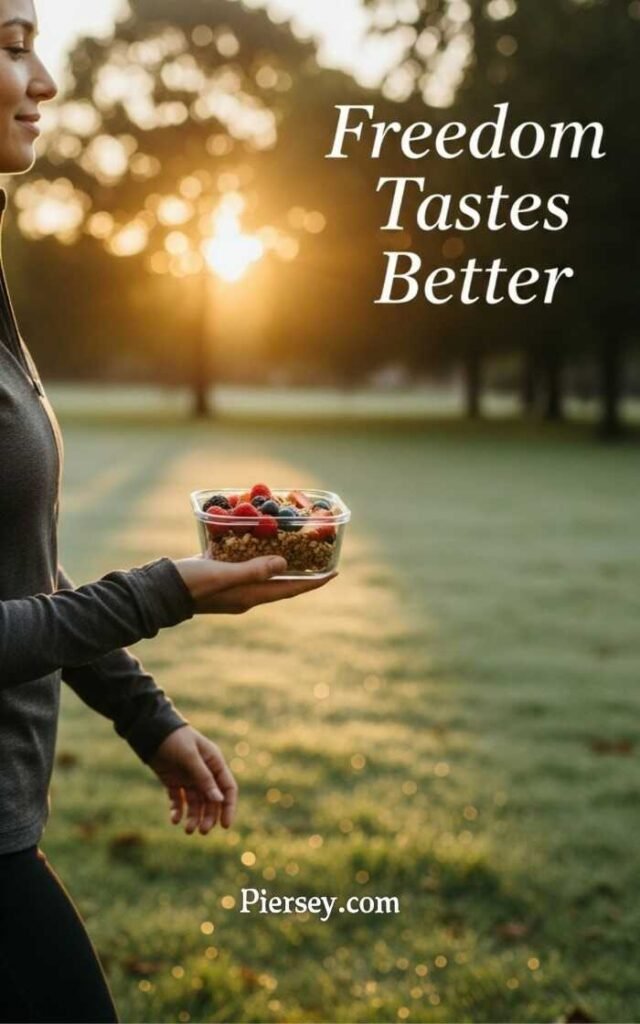

The Takeaway
Food addiction — the hardest addiction to beat. Because you can’t go cold turkey on something you need to survive.
But you can break the cycle.
Not through punishment. Not through another “Monday restart.” But through nourishment. Through awareness. Through compassion.
If you’re hiding wrappers, restarting every week, or just feeling like food’s running the show — you’re not weak. You’re responding to something engineered to keep you hooked.
But you can take your power back. You can find peace again.
Not by fighting food — but by finally understanding it.
And once you do that? That’s where real freedom begins.

